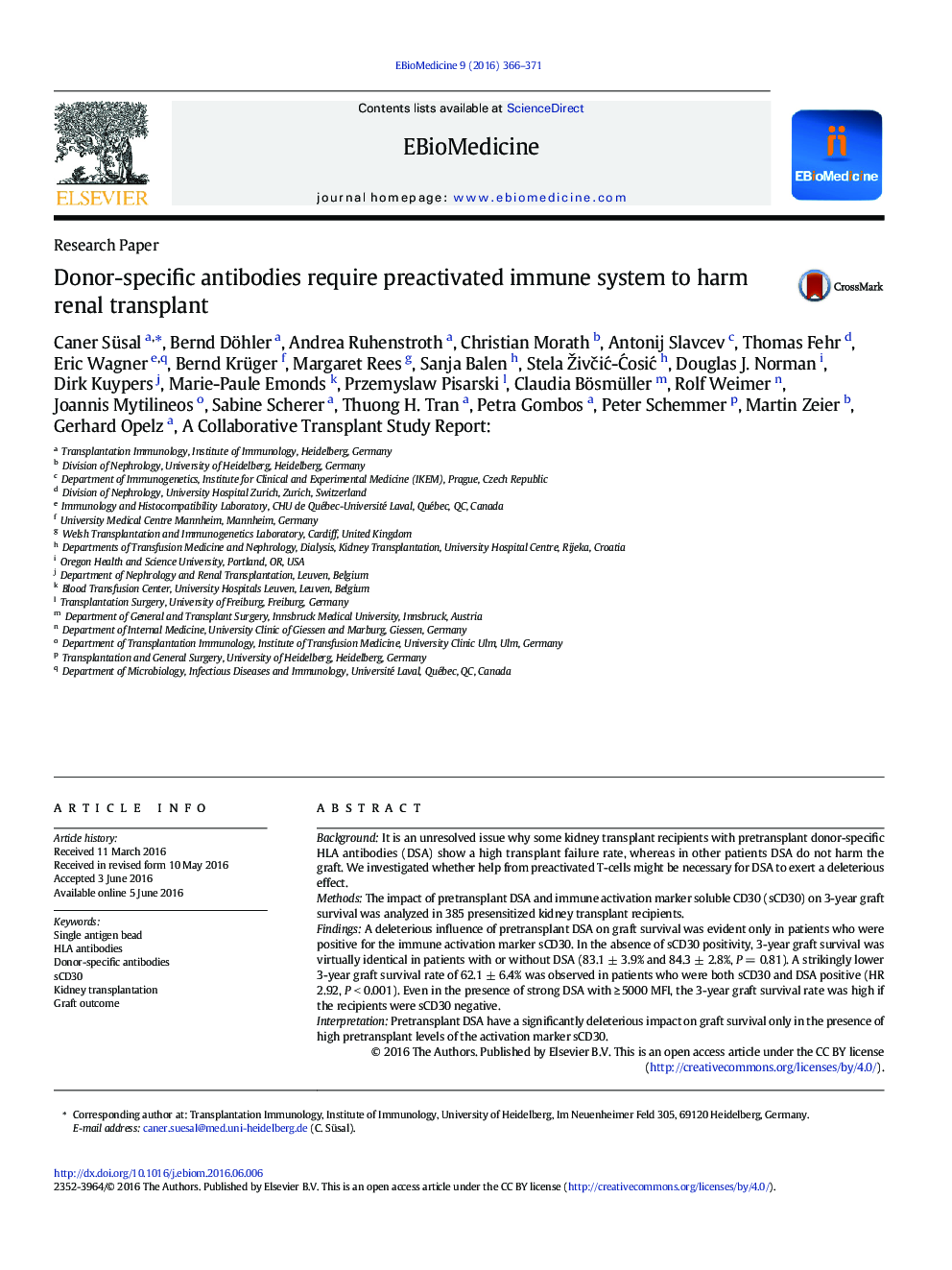| کد مقاله | کد نشریه | سال انتشار | مقاله انگلیسی | نسخه تمام متن |
|---|---|---|---|---|
| 2120732 | 1546890 | 2016 | 6 صفحه PDF | دانلود رایگان |
• Pretransplant DSA have a deleterious impact on graft survival only in the presence of high pretransplant serum levels of sCD30.
• The majority of patients with pretransplant DSA might be transplanted safely without special pretreatment measures.Kidney transplantation in the presence of donor-specific HLA antibodies (DSA) is associated with a high failure rate due to antibody-mediated rejection. Many centers avoid transplantations if DSA are present. Others perform such transplantations after removal of DSA by apheresis under potent immunosuppression.We provide strong evidence that DSA positive recipients reject their grafts at a high rate only if the immune activation marker sCD30 is also high, suggesting that T-cell help from an activated immune system is necessary for pretransplant DSA to exert a deleterious effect on the graft.High-risk patients with DSA and sCD30 may benefit from special treatment measures. The presence of DSA alone may not be deleterious.
BackgroundIt is an unresolved issue why some kidney transplant recipients with pretransplant donor-specific HLA antibodies (DSA) show a high transplant failure rate, whereas in other patients DSA do not harm the graft. We investigated whether help from preactivated T-cells might be necessary for DSA to exert a deleterious effect.MethodsThe impact of pretransplant DSA and immune activation marker soluble CD30 (sCD30) on 3-year graft survival was analyzed in 385 presensitized kidney transplant recipients.FindingsA deleterious influence of pretransplant DSA on graft survival was evident only in patients who were positive for the immune activation marker sCD30. In the absence of sCD30 positivity, 3-year graft survival was virtually identical in patients with or without DSA (83.1 ± 3.9% and 84.3 ± 2.8%, P = 0.81). A strikingly lower 3-year graft survival rate of 62.1 ± 6.4% was observed in patients who were both sCD30 and DSA positive (HR 2.92, P < 0.001). Even in the presence of strong DSA with ≥ 5000 MFI, the 3-year graft survival rate was high if the recipients were sCD30 negative.InterpretationPretransplant DSA have a significantly deleterious impact on graft survival only in the presence of high pretransplant levels of the activation marker sCD30.
Journal: EBioMedicine - Volume 9, July 2016, Pages 366–371
